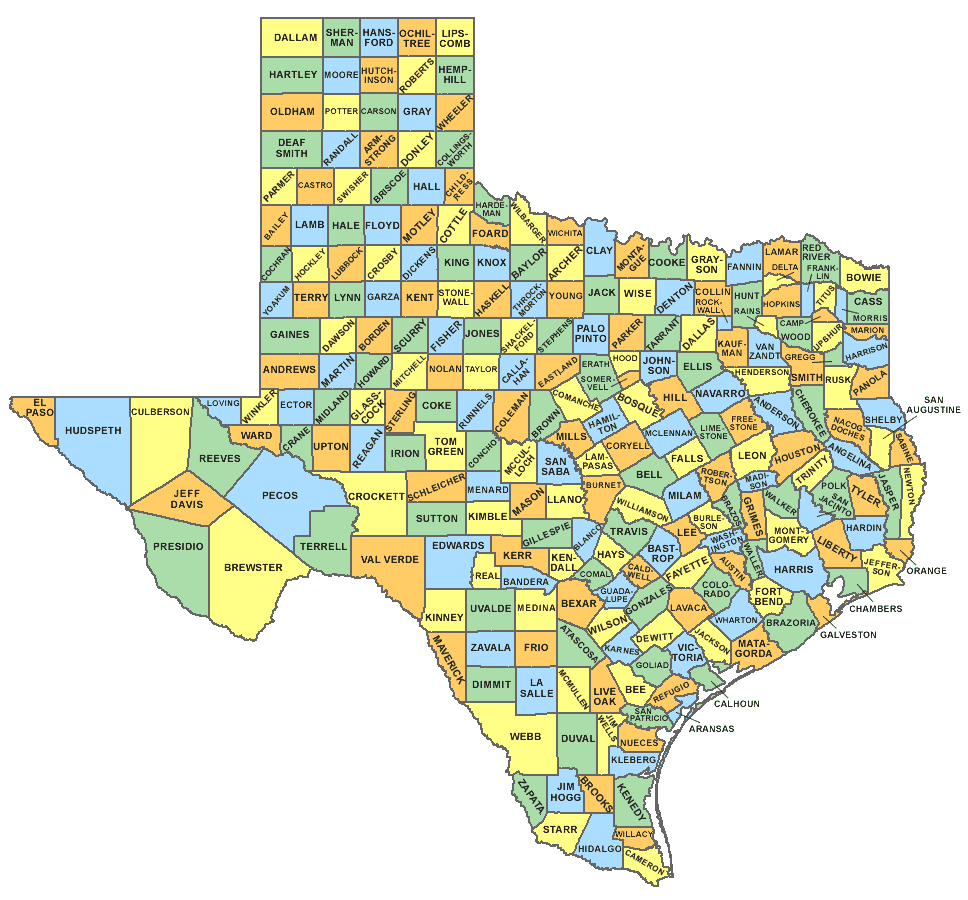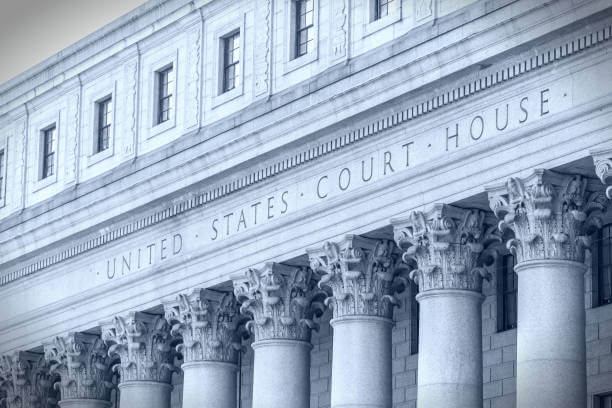What is Venue According to Texas Law and Why Does it Matter for Your Car Accident or Personal Injury Claim?
Disclaimer: No amount of internet research is going to be a proper substitute for the professional expertise of an experienced and knowledgeable attorney. This article is for informational purposes only, and nothing presented in this article constitutes legal advice in relation to any specific situation. Nothing in this article is meant to create any attorney-client relationship, so if you choose to act upon any information presented in this article without consulting with a qualified attorney, please understand that you are doing so at your own risk.
If you have any questions relating to your car accident injury claim or personal injury claim please contact our office and we will be happy to provide you with a free consultation to answer any questions you may have and discuss the specific issues of your claim with you.
I. What is Venue?
Like many other legal terms, venue has a specific meaning in the legal context. When people use the term venue in regular conversation, they are generally referring to the location where an event happens, i.e. a wedding venue.
In legal terminology, the term venue relates to the concept of jurisdiction and generally means the court or forum where a lawsuit is filed and a legal proceeding takes place.
II. What is the Law in Texas Determining Venue for Accident and Injury Claims?
For most accident and injury claims in Texas, venue is determined according to Chapter 15 of the Texas Civil Practice and Remedies Code. This law establishes several parameters which determine the proper venue where a lawsuit should be filed. The venue rules in Chapter 15 of the Texas Civil Practice and Remedies Code cover all of the possible scenarios for every kind of civil lawsuit in Texas, so not all of them are going to apply to every situation. The specific details of a case will determine which of these rules apply and where a lawsuit can be filed according to Texas law.
III. What is the Proper Venue for Most Car Accident Claims According to Texas Law?
For most car accident claims in Texas, the venue rules that are usually going to apply are Texas Civil Practice and Remedies Code Chapter 15 Sections 15.002 (a)(1) and (a)(2).
Section 15.002 (a)(1) states that venue is proper in the county where all or a substantial part of the events or omissions giving rise to the claim occurred.
Section 15.002 (a)(2) states that venue is proper in the county of defendant’s residence at the time the cause of action accrued if defendant is a natural person. The term “natural person” as it is used in this statute simply means a human being as opposed to a corporation, LLC, or any other kind of business entity.
IV. What is the Proper Venue for Car Accident or Injury Claims Against a Corporate Defendant According to Texas Law?
When an accident or injury lawsuit includes a claim against a corporation, LLC, or another business entity, Texas Civil Practice and Remedies Code Chapter 15 Section 15.002 (a)(3) may apply if the business entity has a corporate office in Texas.
For lawsuits against business entities that have a corporate office in Texas, Section 15.002 (a)(3) states that venue is proper in the county of the defendant’s principal office in this state, if the defendant is not a natural person.
Texas Civil Practice and Remedies Code Chapter 15 Section 15.001 defines “principal office” as a principal office of the corporation, unincorporated association, or partnership in this state in which the decision makers for the organization within this state conduct the daily affairs of the organization. The mere presence of an agency or representative does not establish a principal office.
V. What is Proper Venue According to Texas Law if there are Multiple Plaintiffs?
In some situations, there will be more than one plaintiff in a lawsuit. Plaintiff is a legal term that means the person or entity suing or bringing the claim. One common example of a situation involving multiple plaintiffs is a car accident involving more than two vehicles where more than one person is bringing a claim for injuries or damages caused by the accident.
The general test under Texas law to determine whether multiple plaintiffs can bring their claims in the same lawsuit is whether the claims being brought by each plaintiff are so interconnected that they involve the same facts and issues. Guar. Fed. Sav. Bank v. Horseshoe Operating Co., 793 SW2d 652, 658 (Tex. 1990).
Texas Civil Practice and Remedies Code Chapter 15 Section 15.003 states that in lawsuits involving more than one plaintiff, each plaintiff has the legal burden to establish that the venue where the lawsuit is filed is proper for the claims that specific plaintiff is bringing in the lawsuit. Generally, if the claims of multiple plaintiffs in the same lawsuit are interconnected enough to involve the same facts and legal issues, the same venue should be proper for those claims. If a plaintiff cannot establish that the venue which is proper for another plaintiff in the same lawsuit is also proper for their claims, there is a good chance that the claims are not interconnected enough to be in the same lawsuit and they should be filed as separate lawsuits.
VI. What is Proper Venue According to Texas Law if there are Multiple Defendants?
In some situations, there will be more than one defendant in a lawsuit. Defendant is a legal term meaning the person or entity who is being sued or whom the claim is being brought against. Texas Civil Practice and Remedies Code Chapter 15 Section 15.005 states that if there are multiple defendants in a lawsuit, when a plaintiff has established that venue is proper against one defendant, that same venue is proper against all the defendants named in the lawsuit so long as the claims against the named defendants arise out of the same transaction, occurrence, or series of transactions or occurrences.
VII. How is Venue Determined if More than One Venue is Proper According to Texas Law?
On many occasions, there is more than one proper venue for a lawsuit to be filed according to Texas law. For example, if a car accident happened in County A, the driver being sued for causing the accident lived in County B at the time of the accident, and a corporation with its principal office in Texas in County C is named as an additional defendant because the at-fault driver was in the course and scope of his employment at the time of the crash, County A, County B, or County C would all be proper venues for filing the lawsuit according to Texas law. Perryman v. Spartan Tex. Six Cap. Partners, Ltd., 546 S.W.3d 110, 130 (Tex. 2018). When more than one venue choice is legally proper, this is referred to as “permissive venue” because Texas law permits the lawsuit to be filed in one of several possible jurisdictions.
If more than one venue is proper under Texas law, the general rule is that the plaintiff filing the lawsuit gets to choose in which of these venues to file the lawsuit, and as long as the venue chosen by the plaintiff is proper, the lawsuit will generally move forward in the venue where the plaintiff initiating the case chose to file the lawsuit. Perryman v. Spartan Tex. Six Cap. Partners, Ltd., 546 S.W.3d 110, 130 (Tex. 2018); Texas Civil. Practice and Remedies Code § 15.001(a), (b).
VIII. When is Venue Mandatory According to Texas Law?
In some situations, there will only be one venue that is proper to file a lawsuit according to Texas law.
One of these situations is where more than one venue rule applies, but all the applicable venue rules for a specific case dictate that only one venue is proper. For example, if a car accident happened in County A, and the only defendant is a natural person who lived in County A at the time of the accident, County A would be the only proper venue for filing the lawsuit because Texas Civil Practice and Remedies Code Section 15.002 (a)(1) and Texas Civil Practice and Remedies Code Section 15.002 (a)(2) both dictate that County A is the proper venue to file the lawsuit, because County A is both where the accident happened and where the only defendant lived at the time of the accident.
For some specific claims, there is only one venue rule that applies under Texas law and thus there is only one venue which is ever proper for bringing a lawsuit involving those claims. This situation is referred to as “mandatory venue” because Texas law requires that the lawsuit be brought in one and only one jurisdiction, so there is no choice and it is mandatory that the lawsuit be filed in the correct jurisdiction.
In the context of car accident or personal injury lawsuits, one of the most common scenarios where mandatory venue rules would apply would be if there is a car accident involving a county or city vehicle and a lawsuit for damages caused by that car accident is filed against that city or county under the Texas Tort Claims Act. A lawsuit against a county must be brought in the county that is being sued according to Texas Civil Practice and Remedies Code Section 15.015. Similarly, if a lawsuit is being brought against a political subdivision, such as a city or municipality, it must be brought in the county or counties where the political subdivision is located according Texas Civil Practice and Remedies Code Section 15.0151. Thus, for a car accident claim against a county or city, there is a mandatory venue provision under Texas law requiring the lawsuit to be filed in the county that is being sued or in the county (or counties) where the city being sued is located.
IX. What About Federal Court?
The venue rules governing where lawsuits should be filed in Texas state courts, including county courts and district courts, are controlled by the laws of the State of Texas.
i. Federal Courts Have Limited Jurisdiction to Only Hear Specific Kinds of Cases
Conversely, the rules governing when a lawsuit can be properly filed in federal court are governed by United States federal law. Federal courts are courts of exclusive jurisdiction, meaning that only lawsuits meeting specific requirements may be brought in federal court.
Federal courts generally only have jurisdiction over cases arising out of federal law and cases where there is complete diversity of parties.
ii. Federal Courts Have Jurisdiction Over Cases Relating to United States Federal Law, Sometimes Referred to as “Federal Question Jurisdiction.”
Federal courts have jurisdiction over cases arising out of federal law under what is generally referred to as “federal question jurisdiction.” The authority of federal courts to preside over these kinds of cases comes from Article III Section 2 of the United States Constitution and the cases decided by the United States Supreme Court interpreting those constitutional provisions, including Osborn v. Bank of the United States, 22 US 738 (1824). The authority of federal courts to preside over cases arising out of federal law is also governed by 28 USC §1331. One example where federal question jurisdiction would apply to accident or injury claims would be if there is a car accident involving a vehicle of a federal agency such as the US Postal Service and a lawsuit for damages caused by that car accident is filed against that federal agency under the Federal Tort Claims Act.
iii. Federal Courts Have Jurisdiction Over Cases with at Least $75,000 in Dispute and Complete Diversity of Citizenship Between Plaintiffs and Defendants, Sometimes Referred to as “Diversity Jurisdiction.”
The other situation where a federal court has jurisdiction over a case is where there is complete diversity of the parties pursuant to the requirements of 28 USC §1332. This is referred to as “diversity jurisdiction.” For a federal court to have diversity jurisdiction, there must be complete diversity between the plaintiffs and defendants, meaning that no plaintiff in the lawsuit is a citizen of the same state as any defendant named in the lawsuit.Strawbridge v. Curtiss, 7 U.S. 267 (1806). Citizenship for purposes of determining diversity jurisdiction is based on citizenship at the time the lawsuit is filed or at the time it is removed from state court to federal court. For a federal court to have diversity jurisdiction, the amount in controversy in the lawsuit must also be at least $75,000 (seventy five thousand dollars) 28 USC §1332.
In the context of personal injury lawsuits, one example where diversity jurisdiction would apply is the following: a truck driver who is not a Texas resident is driving through Texas to make a delivery in the course and scope of his work for a company which does not have a principal office in Texas crashes into a Texas resident, injuring her. If the Texas resident brings a lawsuit against the truck driver and the company he was working for, she is a plaintiff who is a Texas citizen, whereas both the defendant driver and the defendant company are not Texas citizens, meaning there is complete diversity of citizenship between the plaintiff and the defendants. If the lawsuit seeks damages of at least $75,000 (seventy-five thousand dollars), a federal court would have diversity jurisdiction to preside over the case.
iv. If A Lawsuit Filed in State Court Could Have Been Filed in Federal Court, it can be Transferred to Federal Court in a Process Called “Removal.”
As the plaintiff, the Texas citizen would have the choice whether to file her lawsuit in a Texas state court of proper venue, or the appropriate federal court pursuant to federal question jurisdiction. If she chose to file her lawsuit in Texas state court, either of the defendants could then remove the case to the appropriate federal court pursuant to 28 USC § 1446. Federal law sets out specific procedures and deadlines which govern when and how cases may be removed from state court to federal court, and a case can only be removed from state court to federal court if the case could have originally been filed in federal court pursuant to federal question jurisdiction or diversity jurisdiction.
v. If A Lawsuit Filed in State Court is Incorrectly Removed to Federal Court, it can be Transferred back to State Court via a Process Called “Remand.”
If a case is improperly removed from state court to federal court but the federal court lacks jurisdiction to preside over the lawsuit, after reviewing the alleged basis for federal jurisdiction the federal court will send the case back to the state court where it was filed. The legal term for when a federal court sends a case back to state court is called a “remand.” Remands because of a lack of federal jurisdiction are generally governed by 28 USC §1447.
X. What are the Rules of Texas Law for Situations Where a Lawsuit is Filed in the Wrong Venue in State Court?
If a defendant believes that a lawsuit was filed in the wrong venue in Texas state court, they can file a Motion to Transfer Venue, which is governed generally by Texas Rule of Civil Procedure 86 and Texas Rule of Civil Procedure 87. Applicable law requires that these motions be filed at a specific time at the beginning of the case.
If the court where the case is filed determines that applicable Texas law requires the case to be in a different venue either because of a mandatory venue provision or because the venue where the lawsuit was filed is not a proper venue, the court will issue an order transferring the case to the appropriate venue, i.e. a different Texas state court.
If the venue where the lawsuit was filed is proper under Texas law, but the defendants want to transfer the case to a different venue because they believe it would be more logistically convenient, the court generally has the discretion to decide whether to transfer the case or allow it to stay where it was filed. The guiding principle under Texas that applies to these situations is that if the plaintiff’s choice of venue where the suit was filed is proper, that choice should generally not be disturbed. Perryman v. Spartan Tex. Six Cap. Partners, Ltd., 546 S.W.3d 110, 130 (Tex. 2018); Texas Civil. Practice and Remedies Code § 15.001(a), (b).
XI. How Does Venue Affect My Car Accident or Personal Injury Claim?
The venue in which a car accident or personal injury case is litigated can make a significant difference in its ultimate outcome.
The pool of potential jurors in each court is made up of local residents, so the outcome of a case can often vary significantly depending on where the case is filed and who ends up serving on the jury. The overwhelming majority of jurors will do their best to follow the law and the jury instructions they are given, but every person who is called to jury duty will inevitably bring their past experiences, pre-existing attitudes, and core beliefs with them when they walk into the courtroom. We have all spent a lifetime accumulating our personal experiences, attitudes, and beliefs, and they inevitably influence how we process information and make decisions in every facet of our life as human beings. People whose experiences, attitudes, or beliefs are so strong that they cannot be fair to either side of a case are usually disqualified from serving as jurors for that trial. However, even people who will not be disqualified from serving as jurors will still process information and make decisions based on their experiences, attitudes, and beliefs. The demographics, experiences, attitudes, and beliefs of potential jurors will vary from one venue to another. Thus, the venue where an accident or injury lawsuit is litigated can make a significant difference in the result that is ultimately reached.
Every court also has a different presiding judge. Every judge must follow the law in making legal rulings, but judges have a lot of discretion in determining disputed legal and factual matters in a lawsuit, especially those that do not have a clear-cut definitive answer. It is entirely possible to have the same issue in the same case decided completely differently depending on which judge is making the decision, and a ruling by the judge on one or several key issues in a case can significantly change its ultimate outcome.
There are also important differences between state courts and federal courts that can significantly affect the ultimate outcome of a case. The procedural rules that govern civil cases in Texas state courts, including the Texas Rules of Civil Procedure, Texas Rules of Evidence, and the Texas Civil Practice and Remedies Code are different from their counterparts which govern civil cases in United States federal court. Likewise, many Texas state courts also have their own local rules which are different from one county to another. These subtle but important differences between the rules that will control the proceedings of an accident or injury lawsuit can often make a significant difference in the ultimate outcome of the case.
XII. What Should I Do if I’ve Been Injured and Need to Make a Car Accident or Personal Injury Claim?
Texas personal injury law is complicated. If you’ve been injured in a car accident, truck accident, or any other situation where you may have a personal injury claim, it’s important to have the right attorneys by your side to help you navigate the complexities of the legal system and work to obtain justice and receive full and fair compensation for your damages.
Our experienced personal injury lawyers at The Kishinevsky Law Firm have helped injured clients in the greater Houston area and throughout the State of Texas to successfully obtain full and fair compensation for their damages. If you’ve been injured due to someone else’s fault, contact our office today to schedule a free consultation to discuss your situation and find out how we may be able to help you to receive full and fair compensation for your claim.

In April 2015, Leonid Kishinevsky started the Kishinevsky Law Firm, focusing his practice primarily on personal injury litigation. As a personal injury lawyer providing representation to clients throughout the greater Houston area, he assists people who have suffered economic and noneconomic losses and harms due to the fault of other people or companies.







